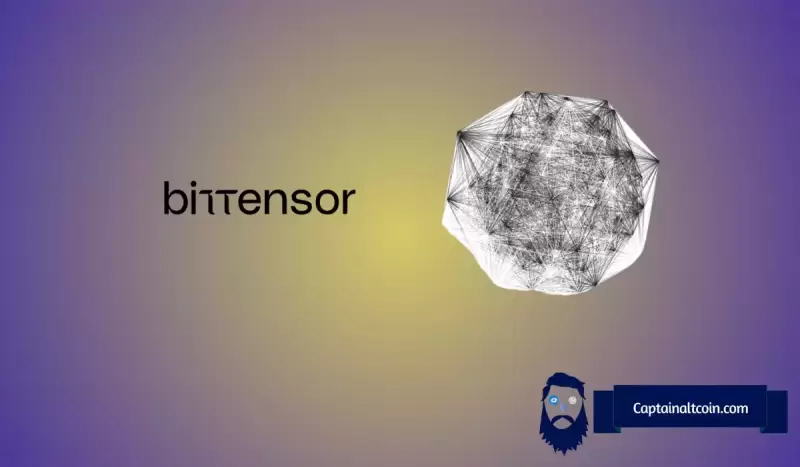 |
|
 |
|
 |
|
 |
|
 |
|
 |
|
 |
|
 |
|
 |
|
 |
|
 |
|
 |
|
 |
|
 |
|
 |
|
Nachrichtenartikel zu Kryptowährungen
Quantum Computing Resurfaces as a Growing Risk for Bitcoin's Long-Term Resilience
Jan 09, 2025 at 12:30 pm

Rapid advancements in quantum computing technology have sparked renewed concerns within the cryptocurrency sector, particularly regarding the long-term resilience of proof-of-work (PoW) blockchains like Bitcoin.
On-chain data analytics platform CryptoQuant recently highlighted these risks in a series of posts on X, focusing on two critical aspects: Bitcoin mining security and private key vulnerabilities.
As quantum technologies progress, both present significant challenges to the cryptocurrency landscape.
Quantum Threats to Bitcoin Mining and Network SecurityBitcoin's PoW system relies heavily on computational power to validate transactions and secure the network. The SHA-256 hash function, central to Bitcoin mining, currently ensures strong security by making it extremely difficult for malicious actors to tamper with the blockchain.
However, CryptoQuant warns that quantum algorithms, particularly those leveraging advanced algorithms like Grover's, could substantially "accelerate hash-solving processes."
If quantum computers become capable of outperforming classical mining hardware in this aspect, it could drastically alter the power dynamics in mining.
Quantum-equipped miners would gain a significant advantage in block validation, potentially leading to a scenario where they dominate the mining process. Such an occurrence would not only disrupt network consensus but also compromise Bitcoin's decentralized structure.
To mitigate these risks, CryptoQuant emphasizes the importance of maintaining a significant share of non-quantum computing hash power in the network. A diverse and healthy mining ecosystem would ensure that no single entity, whether quantum or otherwise, can gain disproportionate control.
This aligns with the decentralized ethos of Bitcoin and ensures its long-term resilience in the face of evolving technological advancements.
As quantum computing continues to advance, it remains crucial for stakeholders, including miners, developers, and the broader crypto community, to closely monitor these developments and take necessary steps to secure the Bitcoin network.
Private Key Security: Vulnerabilities And AdaptationsBeyond mining, quantum computing also presents risks to the security of private keys used in cryptocurrencies like BTC. The Bitcoin network utilizes cryptographic systems to secure wallets and transactions, with public and private keys forming the basis of ownership.
According to CryptoQuant, Shor’s Algorithm could theoretically enable quantum computers to deduce private keys from public keys, thereby rendering cryptographic systems used in Bitcoin vulnerable.
Particularly at risk are Pay-to-Public-Key (P2PK) addresses, where the public key directly serves as the wallet address. In contrast, Pay-to-Public-Key-Hash (P2PKH) addresses provide an additional layer of security by hashing public keys.
However, when BTC from these addresses is transferred, the public key is exposed, increasing susceptibility to quantum attacks. CryptoQuant also observed a notable increase in P2PKH address usage, rising by 14% in recent months.
While the exact cause of this shift is unclear, it suggests heightened awareness and caution among Bitcoin holders regarding quantum vulnerabilities.
Haftungsausschluss:info@kdj.com
Die bereitgestellten Informationen stellen keine Handelsberatung dar. kdj.com übernimmt keine Verantwortung für Investitionen, die auf der Grundlage der in diesem Artikel bereitgestellten Informationen getätigt werden. Kryptowährungen sind sehr volatil und es wird dringend empfohlen, nach gründlicher Recherche mit Vorsicht zu investieren!
Wenn Sie glauben, dass der auf dieser Website verwendete Inhalt Ihr Urheberrecht verletzt, kontaktieren Sie uns bitte umgehend (info@kdj.com) und wir werden ihn umgehend löschen.
-

- Babyswap (Baby) hat gerade einen unglaublichen Zug gemacht - an einem einzigen Tag über 5.000% explodierte.
- Apr 12, 2025 at 08:10 am
- Babyswap (Baby) hat gerade einen unglaublichen Zug gemacht - an einem einzigen Tag über 5.000% explodierte. In dem Ausbruch raste Händler, um herauszufinden, was sich hinter der Pumpe befindet und ob noch Raum zum Laufen ist.
-

-

-

- Während die Meme -Münzhiebbewegung durch die Krypto -Welt führt, gibt Probleme wie mangelnde Fairness, zügellose willkürliche Starts
- Apr 12, 2025 at 08:05 am
- Dieser Artikel befasst sich mit der Produktlogik von Faust.Fun, Kernhighlights, einzigartigen Vorteilen bei der Bewältigung der Industrieprobleme und ihrem Potenzial für die zukünftige Entwicklung.
-

- Aptos (APT) könnte auf eine Rallye von 197% auftreten, da der Preis einen potenziellen Ausbruch zeigt
- Apr 12, 2025 at 08:00 am
- APTOS (APT) könnte auf eine Rallye von 197% auftreten, da der Preis einen potenziellen Ausbruch zeigt, während die wichtigsten Ökosystemmetriken weiterhin nach oben trendten.
-

-

-

- Bittensor (Tao) bricht schließlich aus: Ist dies der Beginn eines großen Aufwärtstrends?
- Apr 12, 2025 at 07:55 am
- Das Bittensor -Token hat vielversprechende technische Signale gezeigt, da es ein bullisches Umkehrmuster vervollständigt. Mit den jetzt gebrochenen wichtigen Widerstandsniveaus scheint Tao in den kommenden Tagen für eine signifikante Aufwärtsbewegung bereit zu sein. Von Rakesh Sharma.
-






























































